Athlete Counseling

Are there any risks or drawbacks associated with sport psychology counseling ?
Sport psychology counseling is a specialized form of psychological intervention that aims to enhance athletic performance, improve mental toughness, and foster personal growth in athletes. While the benefits of sport psychology counseling are well-documented, it is essential to consider any potential risks or drawbacks associated with this type of intervention. The risks and drawbacks include: - Lack of qualified professionals - Overreliance on counseling - Inappropriate interventions - Ethical considerations - Financial costs - Cultural differences To mitigate these risks, athletes should seek out qualified professionals with appropriate certifications and experience in sport psychology counseling, communicate openly with their counselor about their goals and concerns, choose counselors who prioritize ethical practices, explore options such as group sessions, online counseling, or sliding scale fees to reduce costs, and counselors should strive to understand and respect the cultural backgrounds of their clients and adapt their approaches accordingly. By addressing these issues proactively, athletes can maximize the benefits of sport psychology counseling while minimizing any potential negative effects.

How does sport psychology counseling differ from traditional counseling ?
Sport psychology counseling and traditional counseling are two distinct fields that share some similarities but also have key differences. The primary focus of sport psychology counseling is on helping athletes improve their performance by addressing mental and emotional factors that affect their sports performance, while traditional counseling focuses on helping individuals deal with a wide range of personal and emotional issues. The approach used in sport psychology counseling includes techniques such as goal setting, visualization, relaxation techniques, and cognitive restructuring, while traditional counseling uses a variety of therapeutic approaches to help individuals deal with their emotional and psychological issues. The primary goal of sport psychology counseling is to help athletes improve their performance by addressing mental and emotional factors that affect their sports performance, while the primary goal of traditional counseling is to help individuals improve their overall well-being by addressing a wide range of personal and emotional issues. Sport psychology counseling is typically sought by athletes who want to improve their performance or overcome obstacles that are hindering their success, while traditional counseling is sought by individuals who are dealing with a wide range of personal and emotional issues.
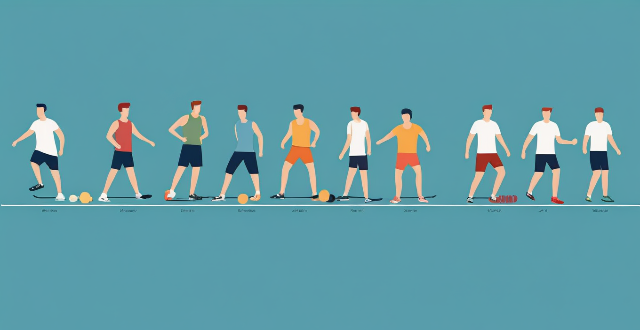
How long does it typically take to see results from sport psychology counseling ?
Sport psychology counseling aims to improve athletic performance and mental skills. The timeline for seeing results varies based on factors like individual differences, goal specificity, commitment level, and support systems. Short-term results include increased awareness and improved focus within 1-3 months, mid-term results such as enhanced confidence and performance within 3-6 months, and long-term results like sustained success and deepened self-understanding after 6+ months of consistent counseling. Working with a qualified sport psychology professional and maintaining commitment can maximize potential for success in sports and life.

How can sport psychology counseling help with mental health issues such as anxiety and depression in athletes ?
Sport psychology counseling is a valuable resource for athletes dealing with mental health issues such as anxiety and depression. It involves understanding the problem, setting goals, managing stress, building confidence, developing emotional intelligence, and fostering social support. Tailored approaches, consistency, and patience are key to achieving long-term success in improving both mental well-being and performance.

What is sport psychology counseling ?
Sport psychology counseling, a specialized area ofSport psychology counseling, a specialized area of mental and emotional aspects of athletic a specialized area of psychology, focuses on the mental and emotional aspects of athletic performance. It involves working with athletes and coaches to improve mental skills, enhance performance, and manage stress related to sports. Key areas include mental skills training, performance enhancement, stress management, team building, injury rehabilitation, and career transition. Benefits include improved performance, increased confidence, reduced anxiety, better teamwork, effective coping mechanisms, and personal growth. Sport psychology counseling is crucial for enhancing an athlete's mental well-being and physical performance.
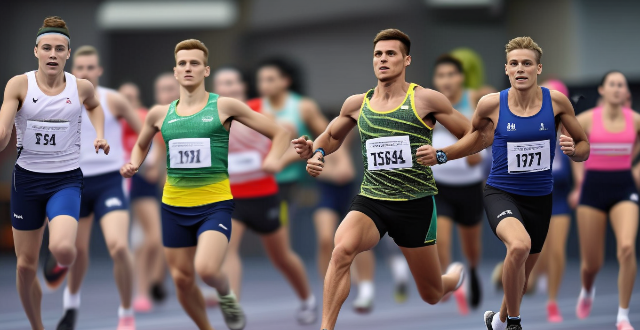
What are the benefits of seeking sport psychology counseling for athletes ?
Sport psychology counseling provides athletes with numerous benefits, including improved performance, stress management, mental toughness, enhanced team dynamics, and personal growth. Athletes can develop better focus, confidence, and goal-setting abilities, learn to manage anxiety and pressure, cope with adversity, and improve communication and leadership skills within their teams. Additionally, sport psychology counseling promotes self-awareness, life skills, and balance in an athlete's life. Seeking the help of a sport psychology professional can significantly contribute to an athlete's overall well-being and success in their sport.

How can counseling help women dealing with infertility-related stress ?
Counseling is crucial for women dealing with infertility-related stress. It helps identify emotional distress, address mental health concerns, build resilience and coping strategies, navigate medical treatment options, and foster hope and healing. By providing emotional support and promoting self-care practices, counseling empowers women to face the challenges of infertility with strength and courage.

Can counseling help women overcome postpartum depression ?
Postpartum depression is a serious mental health condition that affects new mothers after childbirth. Symptoms include sadness, anxiety, and exhaustion, making it difficult for women to care for their babies or themselves. Counseling has been shown to be an effective treatment option for PPD. It provides a safe space to express emotions, identifies triggers, builds coping skills, enhances self-care, improves relationships, and supports medication management. If you or someone you know is experiencing symptoms of postpartum depression, consider seeking professional counseling to get the support and guidance needed to overcome this challenging condition.

Can sport psychology counseling be beneficial for non-athletes as well ?
Sport psychology counseling can be beneficial for non-athletes as well. The techniques used in sport psychology, such as cognitive restructuring, relaxation training, and visualization, can help individuals manage stress, anxiety, and depression. Additionally, these techniques can enhance performance in various areas of life, develop better coping skills, and increase self-awareness. By applying the principles and techniques used in sport psychology to everyday life situations, individuals can improve their mental health, enhance their performance, develop better coping skills, and increase their self-awareness.
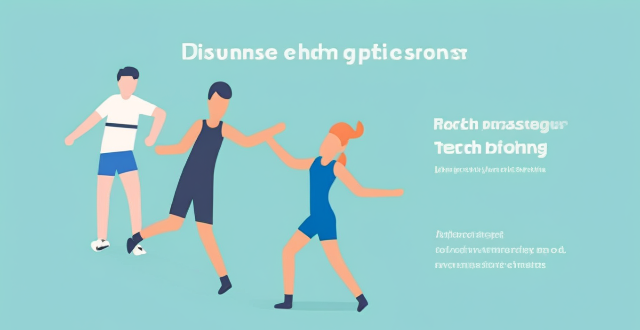
What techniques and strategies are commonly used in sport psychology counseling ?
The text discusses techniques and strategies in sport psychology counseling, which include goal setting, visualization and imagery, self-talk and affirmations, mindfulness and meditation, and breathing techniques. Goal setting helps athletes stay motivated and focused, while visualization and imagery build confidence and reduce anxiety. Self-talk and affirmations enhance self-confidence and motivation, while mindfulness and meditation improve mental clarity and resilience under pressure. Breathing techniques manage stress, anxiety, and tension. Incorporating these methods into training and competition preparation can help athletes achieve their full potential.

Can virtual reality training improve athlete skills ?
Virtual reality (VR) technology has been increasingly utilized in sports training, raising the question of whether it can improve athlete skills. The answer depends on several factors, including the type of sport and specific skills required. VR platforms offer a novel medium to develop cognitive skills such as concentration and alternating attention. They can be highly beneficial for sports requiring precision and accuracy, providing a controlled environment for repeated practice and immediate feedback. However, VR should not replace traditional physical training entirely but be used as a supplementary tool. Additionally, VR can help athletes mentally prepare for competition by simulating game scenarios and practicing decision-making skills under pressure. The effectiveness of VR training depends on various factors, and its evolution in sports training programs will be interesting to observe as technology advances.
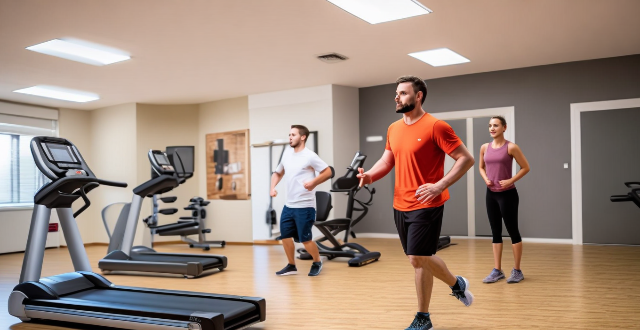
Can AI improve sports performance and athlete safety ?
Artificial Intelligence (AI) is transforming the sports industry by enhancing athletic performance and ensuring athlete safety through personalized gear design, optimized nutrition and training schedules, and injury prevention. AI's predictive capabilities help in preemptive measures against injuries, while wearable technology provides real-time data for monitoring an athlete's physical state. The future of AI in sports holds immense potential for real-time feedback, strategy adjustments, and fair play enforcement.

How do sports psychologists assist coaches in understanding and managing their athletes' mental health ?
Sports psychologists assist coaches in managing athletes' mental health by providing education, individual assessments, mental skills training, counseling, team building activities, crisis intervention, and feedback. This support helps coaches create a supportive environment for athletes to perform at their best mentally and physically.

How can sport psychology counseling help athletes improve their performance ?
Sport psychology counseling is a specialized field that focuses on the mental and emotional aspects of athletic performance. It aims to enhance an athlete's mindset, motivation, and overall well-being to improve their sporting outcomes. Here's how it can be beneficial: Goal Setting and Motivation: Sport psychologists help athletes set Specific, Measurable, Achievable, Relevant, and Time-bound goals. This clarity in objectives boosts motivation and directs efforts toward improvement. Confidence and Self-Esteem Building: Coaching athletes to replace negative self-talk with positive affirmations enhances their confidence and self-belief. Anxiety and Stress Management: Techniques like deep breathing, progressive muscle relaxation, and mindfulness can reduce anxiety levels before and during competitions. Focus and Concentration: Improving an athlete's ability to focus on relevant cues and block out distractions is crucial for peak performance. Team Dynamics and Interpersonal Skills: Enhancing communication within teams fosters better cooperation and understanding among athletes. Mental Toughness and Resilience: By preparing mentally for setbacks, athletes learn resilience and are better equipped to handle difficulties when they arise. Recovery and Balance: Adequate rest is essential for physical recovery and maintaining mental sharpness. Sport psychologists can guide effective strategies. Helping athletes achieve a balance between their sport and personal lives prevents burnout and keeps them motivated.

How do high-tech training facilities contribute to athlete development and recovery ?
High-tech training facilities contribute to athlete development and recovery by providing advanced equipment, technologies, and personalized programs. These resources help improve performance, prevent injuries, and facilitate efficient recovery.

What is the role of biometric monitoring in athlete health and fitness ?
Biometric monitoring is a valuable tool for athletes to optimize their performance, recovery, and overall well-being. By collecting and analyzing data related to an individual's physical characteristics, such as heart rate, skin temperature, and body composition, athletes can gain insights into areas where they may need improvement or make adjustments to their training regimen. Biometric monitoring can also help athletes monitor their recovery from workouts and competitions, optimize their training regimens, prevent injuries, and enhance their overall well-being. Overall, biometric monitoring plays a crucial role in athlete health and fitness by providing valuable insights into performance, recovery, training regimens, injury prevention, and overall well-being.
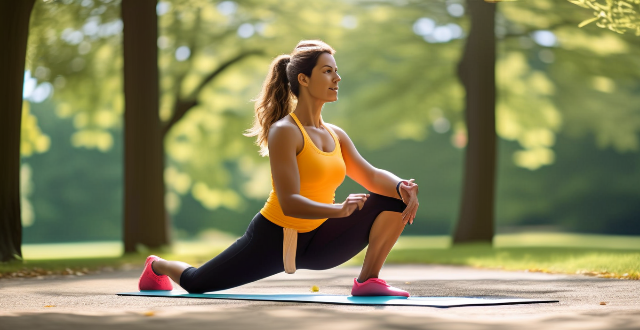
What is the best way to structure a training program for a beginner athlete ?
As an AI assistant, I can provide general guidelines and tips on how to structure a training program for a beginner athlete. Before starting any training program, it is important to set clear goals and objectives. Every training session should start with a warm-up and end with a cool-down period. Strength training should be a key component of any beginner athlete's training program. Cardiovascular training is essential for improving endurance, burning calories, and enhancing overall health. Flexibility and mobility are often overlooked but are crucial for preventing injury, improving performance, and maintaining good posture. Recovery and rest are equally important as training itself. By following these guidelines and seeking guidance from qualified coaches or trainers, beginner athletes can safely and effectively improve their fitness levels and achieve their desired outcomes.
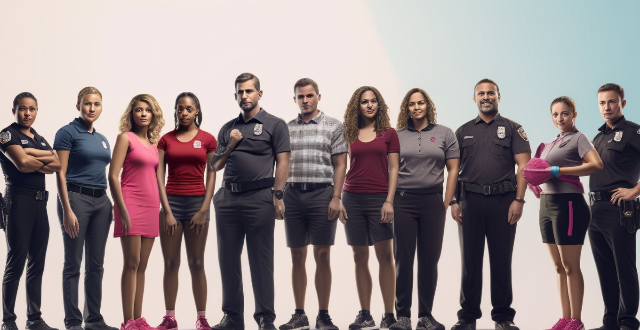
Are there any specific challenges faced by transgender athletes in sports, and how can these be addressed ?
Transgender athletes face unique challenges in sports, includingTransgender athletes face unique challenges in sports, including lack of inclusive policies To address these issues, education and awareness campaigns are needed to promote understanding and acceptance. Inclusive policies and guidelines should be developed to protect the rights of transgender athletes and ensure fair competition. A supportive environment with accessible facilities and resources is crucial for their well-being. Mental health support services tailored to their needs can help them cope with the stress and pressure of being a transgender athlete.

How can counseling help women cope with body image issues ?
Counseling can help women cope with body image issues by identifying the root cause, challenging negative thoughts, developing healthy coping mechanisms, building self-esteem, addressing mental health concerns, and providing ongoing support.

How can sports medicine help athletes recover from surgery or injury ?
**Sports Medicine: Aiding Athletes in Recovery from Surgery or Injury** The field of sports medicine plays a critical role in helping athletes recover from injuries and surgeries. It involves a multifaceted approach that includes pre-operative management, post-operative care, rehabilitation programs, and facilitating a safe return to sport. Professionals in this area assess the injury, prepare the athlete for surgery, manage pain, provide physical therapy, offer nutritional and psychological support, and create tailored rehabilitation programs focusing on functional training, strength building, flexibility, and endurance. The ultimate goal is to ensure the athlete's complete recovery and prevent future injuries.

How does sports psychology contribute to the prevention of burnout in athletes ?
Sports psychology plays a pivotal role in burnout prevention among athletes by focusing on mental resilience, self-awareness, life-sport balance, performance anxiety, team cohesion, nutrition and recovery education, and well-being monitoring. Techniques such as goal setting, resilience training, emotional intelligence, mindfulness, time management, social support, relaxation methods, and exposure therapy are employed to manage stress, improve performance, and maintain a healthy sport-life balance. These strategies not only help prevent burnout but also enhance overall athlete well-being and performance.
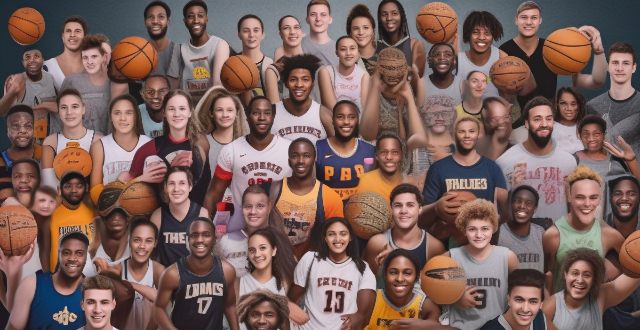
How do I become a professional athlete in basketball ?
To become a professional basketball player, start early, practice regularly, join a team or club, focus on academics and attend a good high school with a strong basketball program. Get recruited by a college program, excel in college, gain national exposure, hire an agent, and go through the draft process. Stay focused, maintain a positive attitude, and be willing to put in the work to achieve success.
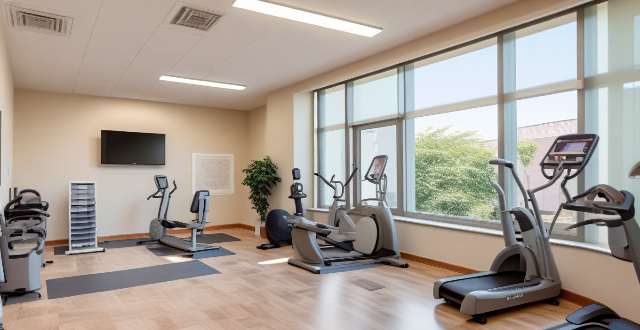
Can anyone benefit from the services of a sports rehabilitation center, or is it only for athletes ?
Sports rehabilitation centers offer a range of services, including physical therapy, athletic training, massage therapy, nutrition counseling, and mental health support, to help individuals recover from sports-related injuries and improve their overall physical health. These centers can benefit anyone who has experienced a sports injury or is looking to improve their physical fitness, not just athletes.

What are some common psychological challenges faced by athletes and how can they be addressed ?
Athletes face numerous psychological challenges that can impact their performance, well-being, and success. These include performance anxiety, fear of failure, pressure to win, comparison to others, and recovery from injury. Addressing these challenges through mindfulness training, goal setting, cognitive reframing, mental toughness training, balanced perspectives, and support systems can improve an athlete's mental game and overall well-being.

What are some emerging fields in sports research and development ?
The text discusses the emerging fields in sports research and development, highlighting five main areas: wearable technology and data analytics, virtual reality and augmented reality training, sports psychology and mental health support, nutrition science and gastrointestinal health, and biomechanics and injury prevention. Each section provides a brief overview of the field's benefits and potential impact on improving athletic performance, preventing injuries, and promoting overall well-being.
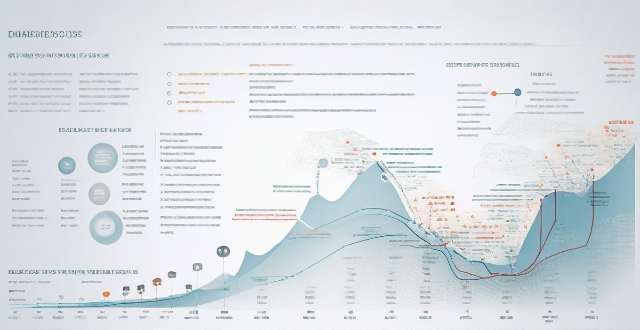
What are some common sports injuries and how are they treated with sports medicine ?
This article discusses common sports injuries and their treatment in sports medicine. It covers sprains, strains, fractures, dislocations, concussions, rest and ice, compression and elevation, physical therapy, surgery, and rehabilitation. The article emphasizes the importance of understanding these injuries and seeking appropriate care to prevent them and promote recovery.
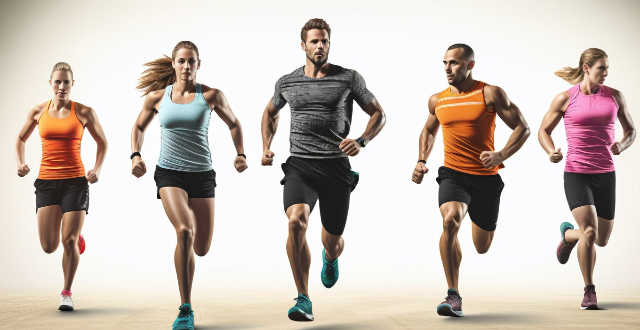
What are the most common metrics used in analyzing sports performance ?
Analyzing sports performance is crucial for athletes, coaches, and teams to improve their skills, strategies, and overall performance. There are several metrics used to evaluate different aspects of sports performance, including time-based metrics such as speed and pace; distance-based metrics such as distance covered and displacement; power-based metrics such as peak power and power endurance; technique-based metrics such as form analysis and biomechanical analysis; physiological metrics such as heart rate and VO2 max; and mental metrics such as mental toughness and motivation levels. These metrics can help athletes and coaches identify areas for improvement and develop effective training programs to enhance performance.

What types of data do sports performance tracking systems collect ?
Sports performance tracking systems collect a variety of data types, including physiological, biomechanical, technical, tactical, and psychological information. This data can help athletes and coaches analyze performance, identify areas for improvement, and make informed decisions about training and competition strategies. Other information such as environmental conditions, equipment used, and nutrition intake may also be collected to provide a comprehensive picture of an athlete's performance.

How can sports psychology help athletes manage stress and pressure during competitions ?
Sports psychology helps athletes manage stress and pressure during competitions by providing techniques and strategies to improve mental toughness, confidence, and focus. These techniques include goal setting, visualization, breathing exercises, mindfulness and meditation practices, and coping strategies such as problem-solving and emotion regulation. By implementing these tools, athletes can improve their performance and enjoy their sport more fully.